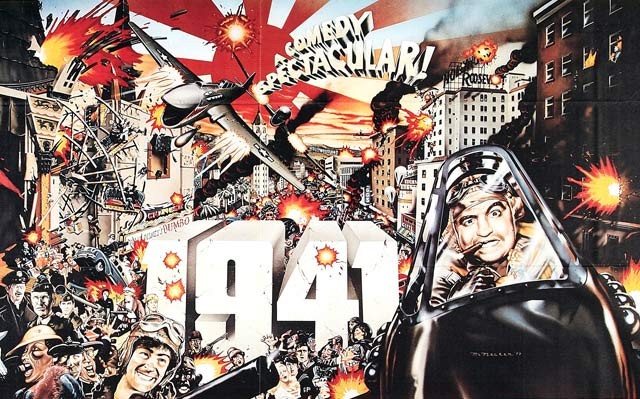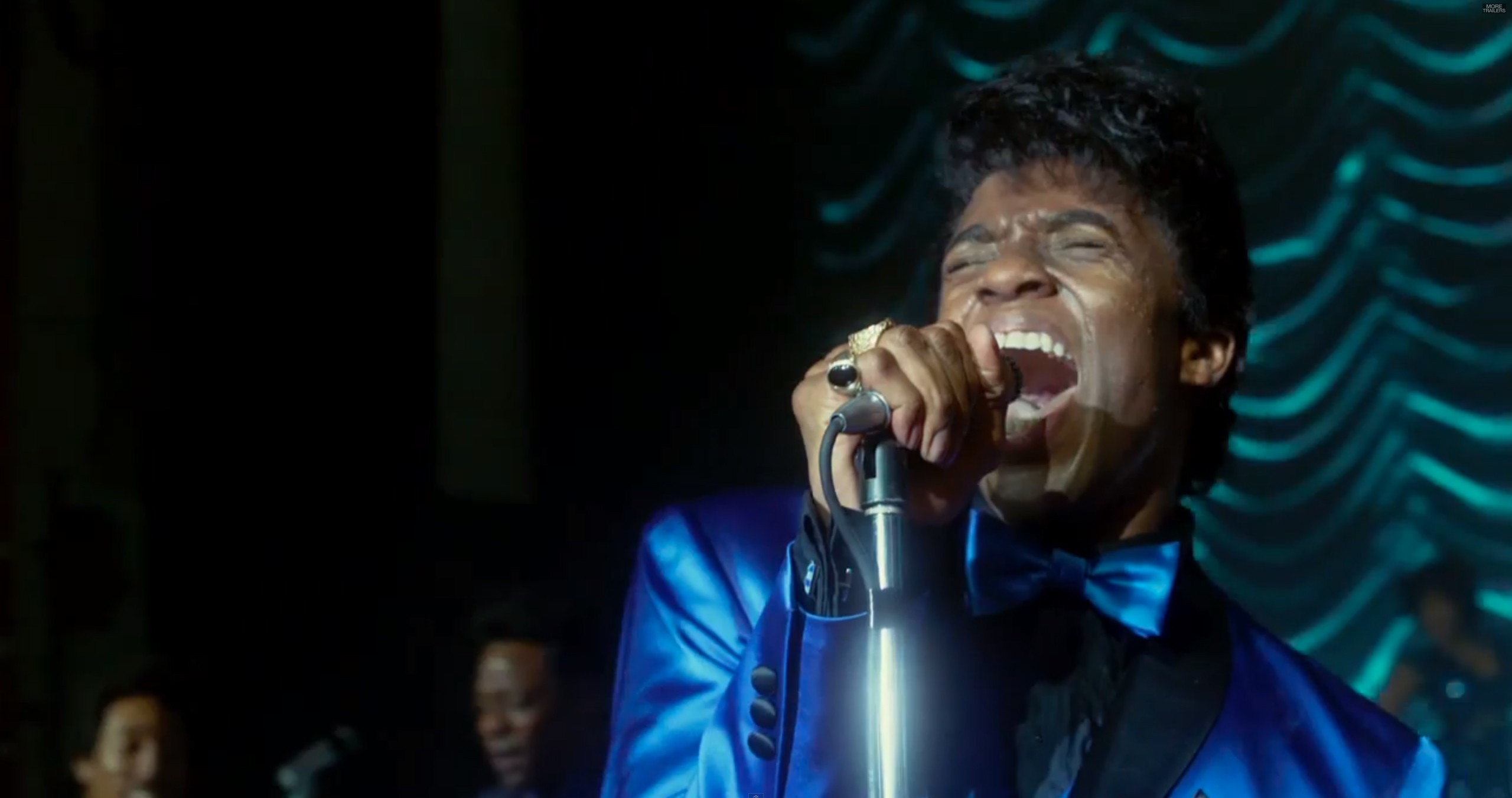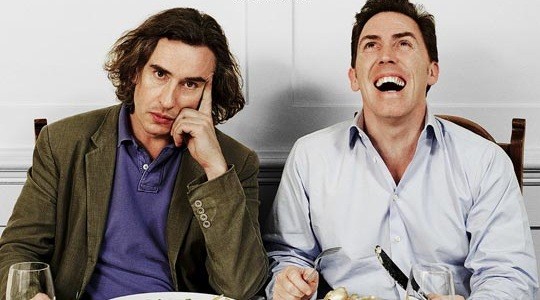
1941 (1979; dir. Steven Spielberg)—Hollywood will not rest until every inspirational story from World War II becomes a hand-over-heart ode to the Greatest Generation. Brad Pitt plays Sergeant Wardaddy—oh, come on—in Fury, which comes out in October; Angelina Jolie directed Unbroken, an “inspiring true story” about WWII prison camps which opens on Christmas Day. In this context, Steven Spielberg’s self-proclaimed “blast in the face” about the night the Japs tried to invade southern California is, if anything, even more vital and necessary. Spielberg and his co-conspirators (among them Robert Zemeckis, John Milius, and anyone who happened to drop by the set) put everything they had into this hyperactive, all-ages demolition derby, and their work shows: it never settles down and never lets up. Nothing is safe; everything is demolished. Among the casualties are the Hollywoodland sign, the USO, the concept of military intelligence, the concept of female virtue, many huge vats of paint, Christmas cheer, the fantasy of living a quiet life in the suburbs and the sanctity of a morning skinny-dip in the Pacific Ocean. It’s infantile, lewd, sticky, gross, and popping with nasty urges; Nancy Allen’s J.G. Ballard-like airplane fetish is maybe the third-kinkiest thing here. And gol-lee, how about that cast: John Belushi, Dan Aykroyd, John Candy, Robert Stack, Toshiro Mifune (who, naturally, speaks only Japanese), Christopher Lee (who, unnaturally, speaks only German), Slim Pickens, and Samuel Fuller, plus a dozen other major and minor cameos. (Three of the four leads in Laverne & Shirley? Mickey Rourke???) I found it an unfunny mess, but I also found it a fascinating free-for-all and a heartwarming piece of civil disobedience that would warm Thomas Jefferson’s heart. Upped a notch for chutzpah. Grade: A-

Get On Up (2014; dir. Tate Taylor)— In his magnificent and perceptive 2006 Rolling Stone profile “Being James Brown”, Jonathan Lethem made the following claim: “James Brown is, like Billy Pilgrim in Kurt Vonnegut’s Slaughterhouse-Five, a man unstuck in time. He’s a time traveler, but unlike the HG Wells-ian variety, he lacks any control over his migrations in time, which also seem to be circumscribed to the period of his own allotted lifespan. Indeed, it may be the case that James Brown is often confused as to what moment in time he occupies at any given moment.” This wildly original sci-fi thesis informs Tate Taylor’s superb new Brown biopic, which conceives of the Godfather of Soul’s life as an endless groove where the needle can be picked up and dropped at random. The jumbled chronology and gallery of James Browns striding through the film only adds to the legend; after seeing Get On Up, I went back to RJ Smith’s biography The One to confirm some details. Did Bobby Byrd really spring Brown from prison and bring him home? (Yes.) Did Little Richard really flirt with Brown at a hamburger stand one night and tell him about the white devils running the music industry? (Probably.) Did a pre-teen Brown win a “battle royale” straight out of Invisible Man? (Yes.) Did he hear the strains of “Cold Sweat” as he did so? (Maybe. Time travel, remember.)As Brown, Chadwick Boseman is sensational—he’s funny without being a parody, and his lip-synching feels like the real thing. His James Brown is electrifying, seductive, materialistic, mythic. And scary, too; watch Boseman look straight into the camera at you after he decks his wife on Christmas Day. Then try to deny Brown’s place at the forefront of pop music today. It can’t be done, because James Brown is history. Let the record show that, to my surprise, I found Get On Up superior to Boyhood in pretty much every way. Grade: A-

The Trip (2010; dir. Michael Winterbottom)—In this semi-authentic travel documentary, actor/comedian Steve Coogan and actor/comedian Rob Brydon travel around northern England, eat fine cuisine, and try to make each other laugh. There’s a little more to it, of course, but not much; Coogan cheats on his American girlfriend twice and falls into a stream, while Brydon quotes Wordsworth in a Scottish accent and tries to talk his wife into phone sex. Will you like it? Depends on how intrigued you are by the prospect of dueling Michael Caine impressions. Civilians like me imagine that this is how professional funny people interact, and it’s simultaneously hilarious and exhausting to watch them engage in endless, irritating, look-at-me riffing that doesn’t stop until someone either laughs or leaves the table. But watching Coogan and Brydon critique each other’s attempts to sound like Sean Connery and Roger Moore, or listening to them as they endlessly repeat the Goldfinger line “Come, come, Mr. Bond, you derive just as much pleasure from killing as I do” is something, like the Lake District, that must be experienced first-hand. Mere words fail me. The sequel, The Trip to Italy, arrives in select cities—like mine—this Friday. Grade: A-

Katzelmacher (1969; dir. Rainer Werner Fassbinder)—Of the dozens of films Fassbinder cranked out before his untimely death in 1982 at age 37, I’ve only seen a handful. But I’ve never been disappointed by his infectious tawdriness and sadistic stylistic voluptuousness; movies like Martha and The Marriage of Maria Braun are not soon forgotten. Katzelmacher, Fassbinder’s second feature, is about working-class belligerence, fear and boredom in a drab, desolate Munich apartment complex. Apparently, in the days before cell phones, people who couldn’t afford to entertain themselves or smoke cigarettes all day squatted outside their apartment, swapped gossip and lies, and beat up foreigners before returning to their hovels for some brutally clinical sex. The actors look worn down to their gums by whatever it is they do for a living off-camera, and the camera is almost entirely motionless; like the characters, it can’t seem to go anywhere or get out of its narrow rut. Grade: A-